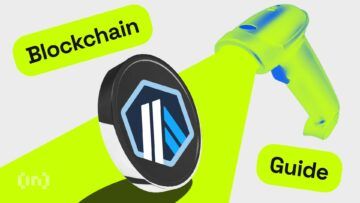What is Cryptocurrency?
- Cryptocurrency is basically a new form of decentralized money that exists entirely on the internet. Most cryptocurrencies are powered by something called a “blockchain”. Think of a blockchain as a ledger of transactions that are stored on many, many computers worldwide, and is constantly updated by all of those computers. Each computer called a “node,” checks that its version agrees with everyone else’s and, in this way, any attempt to alter the ledger maliciously is easily spotted and eliminated.
- Using a blockchain, one can then build an immutable currency that cannot be falsified or altered. It can be sent around the world using the internet in seconds, and with little to no fees. The value on the blockchain is stored in “addresses” which are long cryptographic keys that act as the immutable entries on the ledger. Either one, or a collection, of addresses, can be used as a “wallet,” which is the common term for where you keep your cryptocurrency on the chain.
What Are the Most Popular Coins Available?
While there are way too many to cover here, we’ll go over some of the top unique coins currently available. Again, just because something isn’t listed here, doesn’t mean it’s not a big deal, we just had to draw the line somewhere.1. Bitcoin (BTC)
As mentioned, the first and undisputed champion in the cryptocurrency space. It has the largest market cap, and generally sets the pace for the rest of the market. It is less complex in features than some other coins, but aims to really just be a global, efficient form of money. The supply of Bitcoin is created by what is called “Miners.” Miners are basically operators of special nodes that secure the Bitcoin network by solving complex math problems that ensure each “block” in the “chain” is verified with valid transactions. The reward for the miner is that when they successfully validate a block they receive some Bitcoin. The amount received is basically a constant except that every 4 years the amount is reduced by one half, which is called a “halving.” This will continue until the full, predetermined amount of 21 million Bitcoin has all been mined, which should take over 100 more years. Note that Bitcoin is distinct but similar to another cryptocurrency called Bitcoin Cash. Bitcoin Cash is what is known as a “hard fork” of Bitcoin. There are in fact many, many forks of Bitcoin, as the code is open source and anyone can copy and amend it. Bitcoin Cash works much like Bitcoin but allows for more transactions in each block, which also increases the capacity of the network.2. Ethereum (ETH)
Ethereum is at the head of a group of cryptocurrencies that also aim to act as a world computer. The principal behind Ethereum is very similar to Bitcoin, but transactions can have computer code attached to them, which are called “smart contracts.” Think of smart contracts as a means to program transactions themselves, so that code attached to currency runs across a decentralized network worldwide that has no one central point of failure. These form the basis of decentralized applications, or “dapps.” Whereas a traditional app needs a central server to be run on, a dapp is run across the entire network and can continue to exist so long as there are still nodes running the blockchain. This can obviously be a huge benefit for general accessibility as well as censorship resistance. For now though, it does come at the cost of being notably slower than central server solutions. While developers are working hard to change this, Ethereum and most blockchains following this model aren’t currently fast enough to support a global adoption just yet. However, once that is fixed, we could be seeing the emergence of a true “Internet 3.0” shortly thereafter.3. XRP
XRP is a currency created by the company Ripple, and while it uses technology much like Bitcoin and Ethereum, there are some key differences. For one, the XRP blockchain is not open and decentralized. It is a “permissioned” network, run by Ripple. On top of this, Ripple has already created all of the XRP that will ever exist, and they control the supply exclusively. This is all because XRP doesn’t follow quite the same philosophy as Bitcoin and many of its brethren, as it is meant to be an instrument for banks to make global, cross border money transfers in minutes and for almost nothing. To this end Ripple has seen some success and partnerships, and frankly may become one of the leaders for institutional cryptocurrency use cases. Its existence divides some of the community, as it goes against the free nature of Bitcoin, but if it can prove itself as an attractive asset for major money firms, it may continue to thrive for a long time to come.4. Tether (USDT)
In cryptocurrency, there are a class of coins known as “stablecoins.” These are digital assets whose value is pegged most commonly to fiat currencies but sometimes groups of other commodities. Tether is the most popular and common among stablecoins and it is permanently fixed to the value of the US Dollar. This is useful for cryptocurrency traders as they can use Tether to trade against Bitcoin or any other asset even when their chosen exchange doesn’t have fiat purchases available. Seeing as buying and selling in fiat is usually surrounded with strict regulations, many traders prefer to use a stablecoin such as Tether.5. Monero (XMR)
Monero is among the most popular in a category of cryptocurrency known as “privacy coins.” Privacy coins aim to bring true anonymity to a blockchain. While every transaction on a blockchain is only represented by numbers, if you can identify who is behind any address then you can follow the money no matter how far it goes, as the entire history of the chain is available for anyone to see. Coins like Monero use advanced cryptography to mix transactions together so that it is virtually impossible for observers to see where the money originates from and ends up. This obviously has huge implications for anyone who wants their financial history to be kept private. Some make the case that coins like this are primed for abuse by criminals, but privacy advocates point out that everyone has a right to their finances being kept secret, no matter what your business is. Know that there are many, many more coins out there, some with other unique characteristics. That being said, the ones covered here represent some of the biggest coins across various types of project philosophies, but feel free to explore their countless siblings.What Are Some of the Best Places to Buy Cryptocurrency?
While there’s no shortage of options for exchanges where you can buy and sell cryptocurrency, here are a few choice names that should be easy enough to get started on. Know that on any of these sites you will be expected to go through some standard “Know-Your-Customer” procedures before making a credit card purchase or moving large sums of cryptocurrency off of the site.Stormgain
- Stormgain is a simple yet robust platform that offers many cryptocurrency pairings and has the ability for users to make purchases with a credit card. It offers charts with a wide variety of tools and indicators, and customers can apply for margin accounts which let them trade with up to 100x leverage on certain pairings. Note that most trading pairs are matched with Tether, though some use Bitcoin.
Binance
- Binance is the worlds largest and most popular exchange, and offers even more asset options. It also supports both credit card purchases and leveraged trading, and has become one of the standards of the industry in general.
- One downside for US customers is that neither Stormgain nor Binance allow accounts from that country.
Coinbase
- Hardly the only exchange available to United States traders, but generally considered among the easiest for newcomers. Again, you have multiple options for purchases including credit cards, though there is no margin trading in a standard Coinbase account. Though to be fair, newcomers probably shouldn’t be trading on leverage anyway.
- These are just three big industry names, but there are many more such as Bittrex, Bitfinex, Kraken, KuCoin and dozens of others. If you stick to the biggest names you should be just fine, but it still is wise to always do your research on a given exchange before handing them your money.
Some Basic Tips For Staying Safe When Handling Cryptocurrency
Assuming you are reading this with the intent to soon purchase some coin for yourself, there are a few things to keep in mind while you navigate this brave new world.1. Not Your Keys, Not Your Coin
When you purchase cryptocurrency on an exchange, it is still technically in the possession of the company running the site until you move it into a personal wallet. When you have your own wallet you should have what is known as “private keys” for it. Exactly how these work is outside the scope of this article but they are essential for being able to access your funds on the blockchain. So new users should be aware that, one, they should NEVER reveal their private key to anyone for any reason, and two, that if they don’t have the keys for their coins they don’t really own it yet.2. Scams, Scams Everywhere
In a similar vein, users should always be aware of scammers. Cryptocurrency is money, and money attracts liars and thieves. Basically, if something sounds too good to be true, it is. If someone is offering you free cryptocurrency for ANY REASON they are almost certainly lying. If someone says that if you send them some coin, they will send you even more in return, they won’t. If you get an email, text message or other DM with a link that you don’t 100% trust, don’t click on it.3. Educate Yourself, Go Slow, and Double-Check
Before you make your first purchase, it is never a bad idea to learn as much as you can about what asset you are buying, why you want it, who you are buying it from and how you are going to store it. This may sound like a lot, but it isn’t just scammers and hackers your looking out for, it’s your own mistakes. Don’t be too scared, with cryptocurrency; virtually all mistakes can be stopped beforehand by taking your time, reading all relevant documentation and just double-checking your steps. About to hit “Buy” on an exchange? Check that you filled out your order amounts correctly. Are you sending your first Bitcoin purchase to a private wallet? It’s never a bad idea to double or triple check the address your sending to, even if you copied and pasted it. Using a new exchange or wallet? See what the community is saying about it before sending any of your money to it.Conclusion
While we have really only scratched the surface, you should now be ready for more education. Hopefully, the information laid out here is enough to at least help you decide if cryptocurrency is right for you, and what types of projects you may be most interested in. There’s no shortage of branches that you can get involved with in this space. There’s development, mining, social media promoting, trading, journalism and advocacy, just to name a few. Congratulations! You’re taking your first steps into a new, digital world of money, and you likely won’t be looking back anytime soon./Related
More ArticlesTrusted
Disclaimer
In line with the Trust Project guidelines, the educational content on this website is offered in good faith and for general information purposes only. BeInCrypto prioritizes providing high-quality information, taking the time to research and create informative content for readers. While partners may reward the company with commissions for placements in articles, these commissions do not influence the unbiased, honest, and helpful content creation process. Any action taken by the reader based on this information is strictly at their own risk. Please note that our Terms and Conditions, Privacy Policy, and Disclaimers have been updated.





